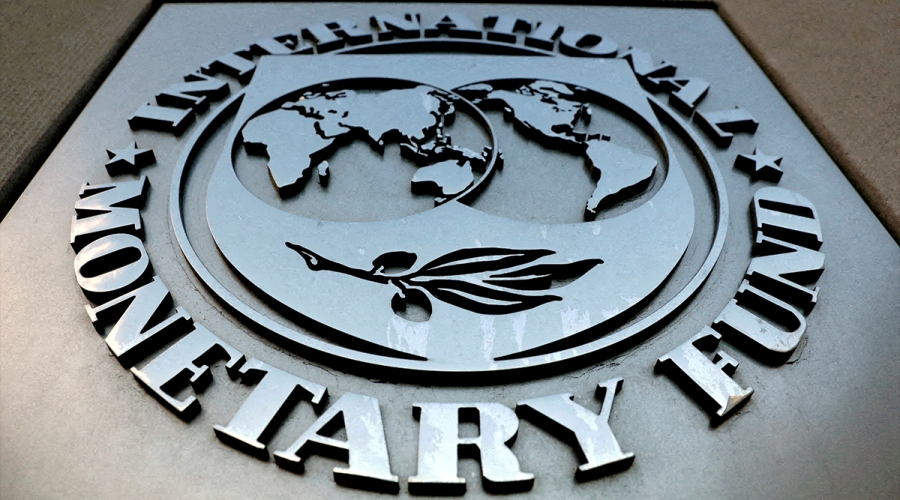Africa's Case Against the IMF and World Bank

In the shadows of the Second World War, the IMF and World Bank were born to stabilize nations. However, they have destabilized Africa. Discover three compelling reasons why they must reform radically and what Africa should do if that doesn't happen.
In the wake of World War II, the Bretton Woods institutions—comprising the International Monetary Fund (IMF) and the World Bank—were established to stabilize a world emerging from the ashes of conflict. However, over seven decades later, these institutions stand as bastions of an outdated order, perpetuating a cycle of dependency and inequity that stifles the potential of developing nations, particularly in Africa.
Antonio Guterres, the UN Secretary-General, has recently called for significant reforms, denouncing the IMF and World Bank's pandemic response as a "glaring failure" that plunged many countries into deeper debt. This critique, resonating with voices from the Global South, demands immediate, transformative action. Here are three compelling reasons why Africa must urgently push for these reforms, and failing that, consider a unified withdrawal from these institutions.
The Structural Bias and Historical Injustice
Firstly, the architecture of the IMF and World Bank is rooted in a post-war reality where many African nations were still under colonial rule. This structure inherently favors wealthy nations, with decision-making power concentrated in the hands of a few. The president of the World Bank is traditionally a U.S. national appointed by the U.S. President, and the IMF's managing director is a European Union national chosen by the European Commission. This power dynamic ensures that the policies and priorities of these institutions reflect the interests of their powerful patrons, not the needs of developing nations.
Clearly, this system stinks bias and injustice. It was designed in an era when African voices were marginalized, if heard at all. Today, this legacy persists, with African countries holding only a tiny percentage of voting rights in both IMF and World Bank. This disproportionate influence means that the policies imposed often exacerbate economic disparities rather than alleviate them. For Africa to break free from this cycle, the decision-making process must be democratized, granting equal representation and influence to all member states.
The Pandemic's Exposure of Systemic Failures
Secondly, IMF and World Bank’s systemic failures have proved to be a lethal virus that has greatly weakened Africa. The COVID-19 pandemic served as a stress test for global financial institutions. The IMF and World Bank failed spectacularly. During the crisis, wealthy nations received the lion's share of IMF resources. The Group of Seven (G7) nations, with a population of 772 million, were allocated $280 billion, while the least developed countries, home to 1.1 billion people, received a meager $8 billion. How now? This disparity underscores a fundamental flaw in the allocation of resources: the needs of the poorest and most vulnerable are systematically deprioritized by these two institutions.
This skewed distribution of aid is not just a technical oversight; it is a moral failure. Africa now spends more on debt servicing than on healthcare, forcing governments to choose between repaying debts or keeping their own citizens alive through better healthcare. This untenable situation has been exacerbated by rising inflation, increased interest rates, and stagnant debt relief. The IMF and World Bank must overhaul their funding mechanisms to prioritize humanitarian needs and sustainable development over the financial interests of the richest nations.
A Call for Financial Sovereignty and New Alliances
Thirdly, Africa must demand financial sovereignty and craft new alliances that will enable this sovereignty. The Bretton Woods institutions' response to Africa's crises has consistently been top-down, with policies dictated by distant bureaucracies rather than tailored to local realities. This approach has not only failed to foster genuine development but has also stymied the continent's financial sovereignty. The conditionalities attached to IMF and World Bank loans often compel African nations to implement austerity measures, privatize public assets, and liberalize their economies in ways that are often detrimental to local industries and social welfare.
In the face of these challenges, Africa must assert its right to chart its own economic path. This could mean forming new alliances and seeking alternative sources of funding that respect the continent's autonomy and developmental priorities. China, despite its controversial lending practices, has emerged as a significant alternative, underscoring the need for Africa to diversify its financial partnerships. However, true sovereignty will come from building robust, self-sustaining economies that are not overly reliant on external debt.
Conclusion: A Crossroads for Africa
The call for reform of the IMF and World Bank is not just a plea for fairness; it is a demand for survival and dignity. The current international financial architecture is a relic of a bygone era that perpetuates inequality and stifles growth. If IMF and World Bank cannot adapt to meet the needs of the 21st century, Africa must seriously consider withdrawing en masse and forging a new path.
The stakes are high, and the time for half-measures has passed. Africa's future cannot be mortgaged to institutions that have consistently failed to deliver equitable and effective support. The continent must demand nothing less than a complete overhaul of the IMF and World Bank, one that places the needs of the many above the interests of the few.
عنوان البريد الإلكتروني هذا محمي من روبوتات السبام. يجب عليك تفعيل الجافاسكربت لرؤيته.

 Ar
Ar  Fr
Fr  En
En